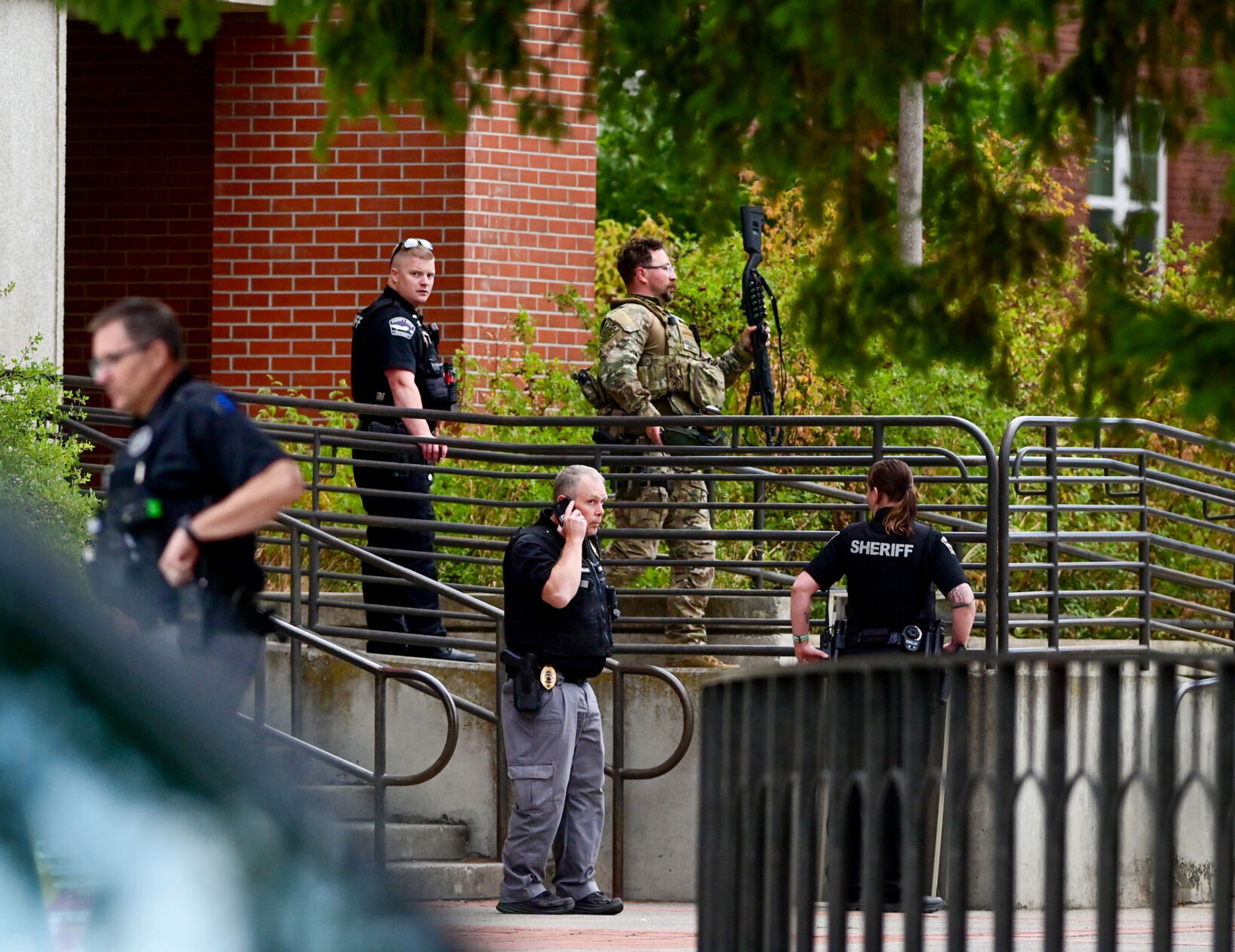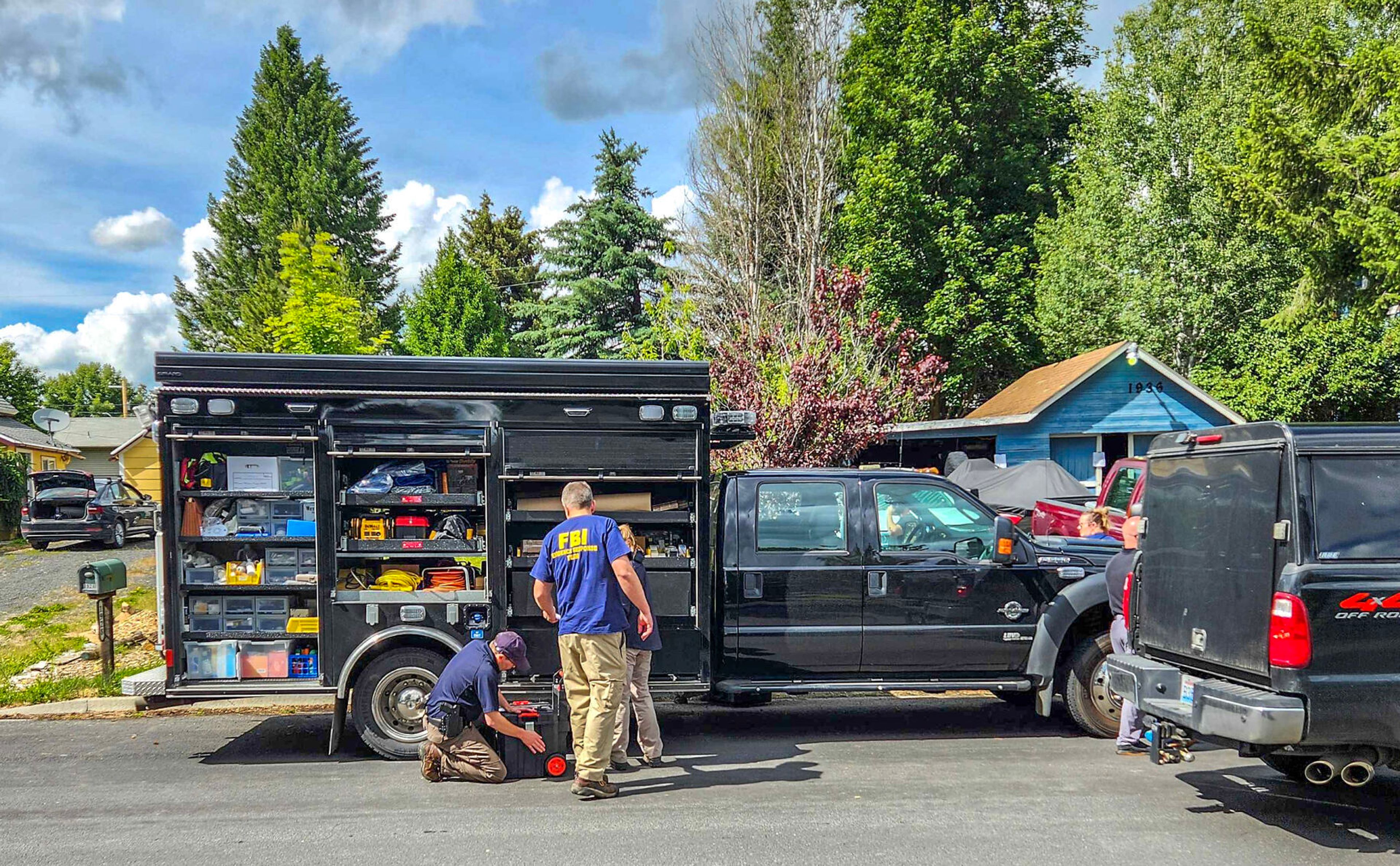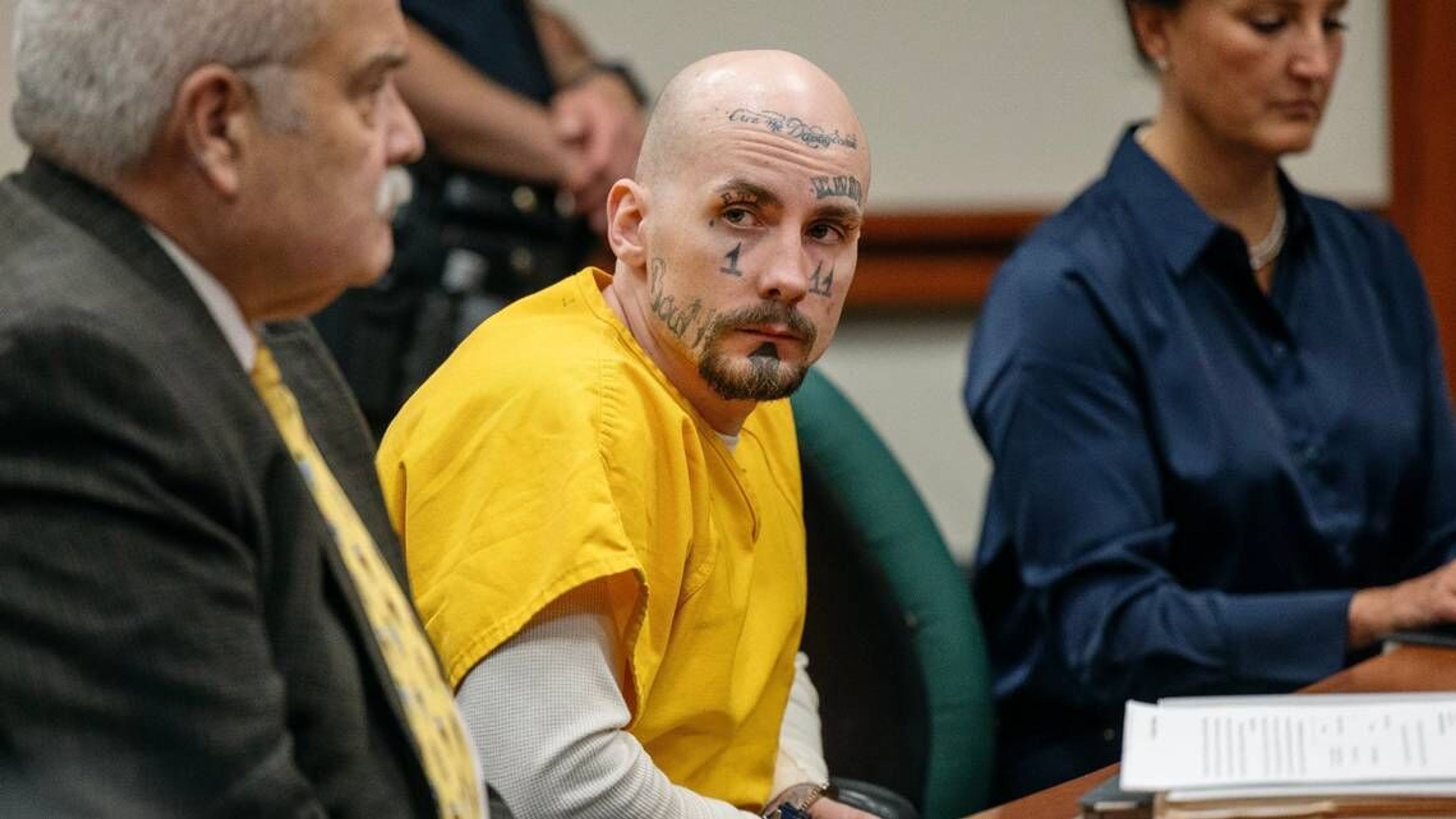Pullman police discuss use of force
Patrol sgt. explains how police are trained to handle uncooperative suspects
A few weeks after two lawsuits were filed alleging Pullman police officers used excessive force when making arrests, PPD Patrol Sgt. Greg Umbright says officers are trained to use the least amount of force needed, but situations can quickly escalate.
Umbright spoke to the Pullman Police Advisory Committee on Monday during a discussion on the use of force.
The discussion comes just three weeks after Treshon Broughton, a former Cougar cornerback, filed a lawsuit in U.S. District Court in Spokane alleging Pullman police officers repeatedly struck his head and inappropriately deployed a taser into his back while holding him on the ground during an arrest at a convenience store on the Washington State University campus in February 2017.
Another suit filed in the same court, alleges Pullman officers used excessive force and failed to follow their department-mandated mental health training when arresting then-WSU student Kyle North at Jack in the Box in August 2016. North, who was later diagnosed with schizoaffective disorder, suffered a broken arm in the arrest.
"An officer must use sufficient force to overcome the force that they face," Umbright told the committee.
The public trusts police to get dangerous situations under control, which sometimes require the police to use more than verbal commands, he said.
"The citizens expect us, the officers, to win," Umbright said. "You pay us to win. You pay us to protect you."
Umbright briefly spoke about the laws, both constitutional and state laws, that set limits for the amount of necessary force the police can use. Washington state law says necessary means "no reasonably effective alternative to use of force appeared to exist."
Umbright said there are three levels of force officers use depending on the actions of the suspect when verbal commands or the presence of the officer alone do not work.
Control tactics, or the lowest level, include some physical contact such as submission holds.
The second level, impede techniques, include the use of an officer's body - like knees or elbows - and impact weapons like the officer's baton or flashlight.
The third level, stop tactics, include hitting the suspect in the head or using a firearm.
The police officer must judge what level of response to use depending on the actions of the suspect, and the threat to the police officer and the public.
"For any given moment, the levels of response need to meet the standards of reasonableness," he said.
During the meeting, Umbright demonstrated submission holds meant to control a suspect.
Gripping the elbows and wrists of the suspect, these holds are meant to cause minimal discomfort if the person is not resisting, he said, noting if they are resisting, a slight bend of the elbow or wrist can cause enough discomfort to get the person to stop or go to the ground where they can be subdued.
Umbright said when a subject is resisting arrest, getting them under control does not always happen smoothly, as it does in movies and TV shows where fights against the perpetrators are clean and quick.
"It's not that clean," he said. "It doesn't happen that way."
Stephanie Rink, a committee member who took part in the demonstration, said demonstrations like the one performed by Umbright could help people understand the difficulty of dealing with someone resisting arrest.
Umbright said incidents where Pullman police have to use any kind of force are rare. In 2018, there were only 37 scenarios where use of force was necessary. He said 13 of those had minor injuries, and no one had to be transported to the hospital.
Police Chief Gary Jenkins said during the meeting he met with Washington State University President Kirk Schulz about the Broughton arrest. He also met with representatives from WSU multicultural student groups and the WSU Black Faculty and Staff Association to start a dialogue about the situation.
He said the WSU Black Faculty and Staff Association expressed a desire to have a representative on the Pullman Police Advisory Committee.
After video of the Broughton arrest surfaced, his department has heard many negative comments from the public, Jenkins said.
"Our staff is really starting to feel the negative impact of that," he said.
He said the staff have participated in a program similar to a critical incident stress debriefing that is designed to help them cope with the stress they may be feeling.
Anthony Kuipers can be reached at (208) 883-4640, or by email to akuipers@dnews.com.







